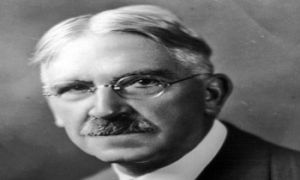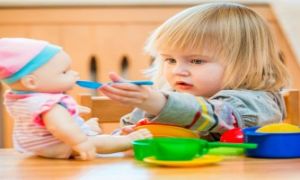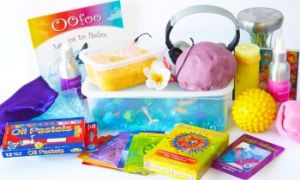

When writing Summative Assessments it provides you an opportunity to summarise all the documentation you have collected on each child's learning and development and "sum" up to emphasize children's strengths and make learning visible.
In partnership with the New South Wales regulatory authority, ACECQA has developed a series of short, interactive eLearning modules to help approved providers understand their responsibilities under the National Law and Regulations. These modules are also available in web accessible versions.
The following lists the sub outcomes, examples of evidence when children can achieve each sub outcome and how educators can promote and help children to achieve MTOP Learning Outcome 5 - Children Are Effective Communicators.
In a mixed age group of children, an educator who is caring for one age range of children can also be counted against another age range of children, as long as the ratio for each age range is maintained and adequate supervision is maintained at all times.
Conducting performance reviews is an effective way to recognise and reward individual educators contributions within the service. The purpose of performance reviews is to assess the performance of individual educators and to improve communication between Educators and management.
Within the Early Years Learning Framework, there are three basic concepts that children’s lives are characterized by. They are Belonging, Being and Becoming.
As a Diploma Qualified educator, you are to plan, implement and evaluate an educational program that supports a holistic approach to the care and development of children aged from birth to six years of age.
As a Cert 3 Qualified Education, you are required to work in a team to provide high-quality early childhood education development, learning and care to children.
As Educators, there will be many instances where you will need to write about a child's behaviour. For a behaviour management plan, assessments, half-yearly or yearly reports and more. The following lists descriptive words and their meaning that can be used to describe a child's behaviour.
 Toddlers have a greater understanding of the world around them by this stage. Their cognitive development (also known as intellectual development and thinking skills) continues… Read More
Toddlers have a greater understanding of the world around them by this stage. Their cognitive development (also known as intellectual development and thinking skills) continues… Read More
 Infants begin to develop trust when parents begin to fulfil their needs. Such as changing an infant's nappy when needed, feeding on request and holding… Read More
Infants begin to develop trust when parents begin to fulfil their needs. Such as changing an infant's nappy when needed, feeding on request and holding… Read More
 Beginning at birth the construction of thought processes, such as memory, problem solving, exploration of objects etc, is an important part of an infant’s cognitive… Read More
Beginning at birth the construction of thought processes, such as memory, problem solving, exploration of objects etc, is an important part of an infant’s cognitive… Read More
 Toddlers want to do more on their own and do not like it when you begin to establish limits on their behaviour. Tantrums can become… Read More
Toddlers want to do more on their own and do not like it when you begin to establish limits on their behaviour. Tantrums can become… Read More
 Your preschooler is now able to focus their attention more accurately and is less influenced by distractions. The intensity of questions increase as your child… Read More
Your preschooler is now able to focus their attention more accurately and is less influenced by distractions. The intensity of questions increase as your child… Read More
 John Dewey is often seen as the proponent of learning by doing – rather than learning by passively receiving. He believed that each child was active,… Read More
John Dewey is often seen as the proponent of learning by doing – rather than learning by passively receiving. He believed that each child was active,… Read More
 Toddler advance and gains new skills in Gross Motor Development milestones achieved throughout earlier years. Co-ordination and challenges that could not be performed before such… Read More
Toddler advance and gains new skills in Gross Motor Development milestones achieved throughout earlier years. Co-ordination and challenges that could not be performed before such… Read More
 Erik Erikson developed a psychosocial theory to understand how we each develop our identities through eight stages of psychosocial development from infancy to adulthood. The… Read More
Erik Erikson developed a psychosocial theory to understand how we each develop our identities through eight stages of psychosocial development from infancy to adulthood. The… Read More
 At this point preschoolers begin to interact effectively with others. Play becomes more innovative and organized and “boyfriend” or “girlfriend” begins to emerge. Preschoolers have… Read More
At this point preschoolers begin to interact effectively with others. Play becomes more innovative and organized and “boyfriend” or “girlfriend” begins to emerge. Preschoolers have… Read More
 From now, babies begin to identify and respond to their own feelings, understanding other's feelings & needs and interact positively with others. A baby's social and… Read More
From now, babies begin to identify and respond to their own feelings, understanding other's feelings & needs and interact positively with others. A baby's social and… Read More

John Dewey is often seen as the proponent of learning by doing – rather than...
See more...
Swiss psychologist Jean Piaget theorized in the pre-operational stage between two and seven years, children...
See more...
A calm down box has a variety of sensory tools that a child is encouraged...
See more...© 2009-2025 Aussie Childcare Network Pty Ltd. All Rights Reserved.

